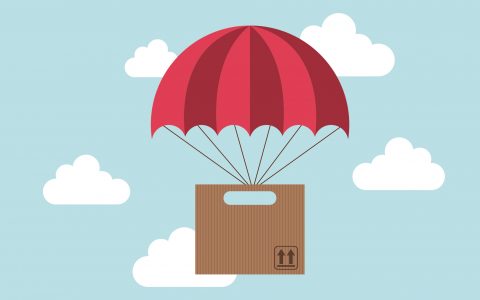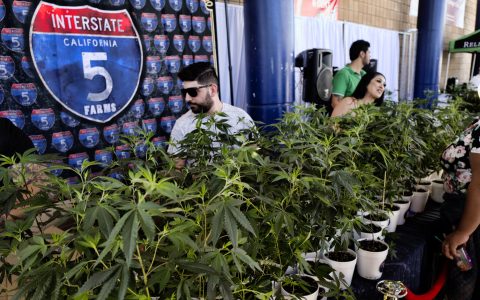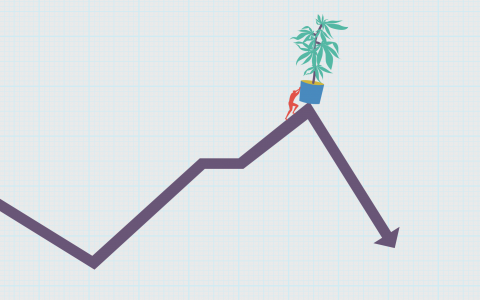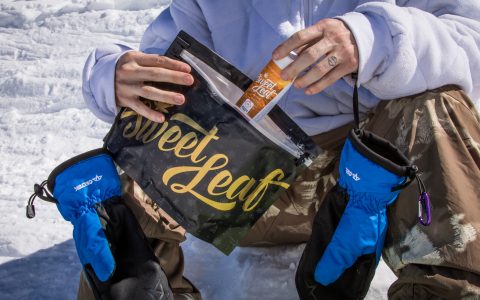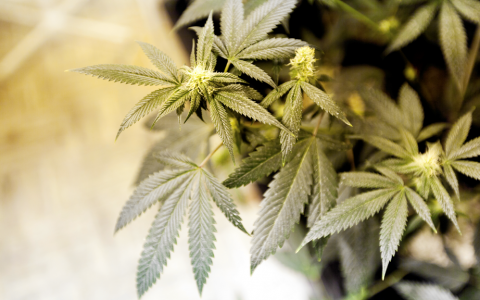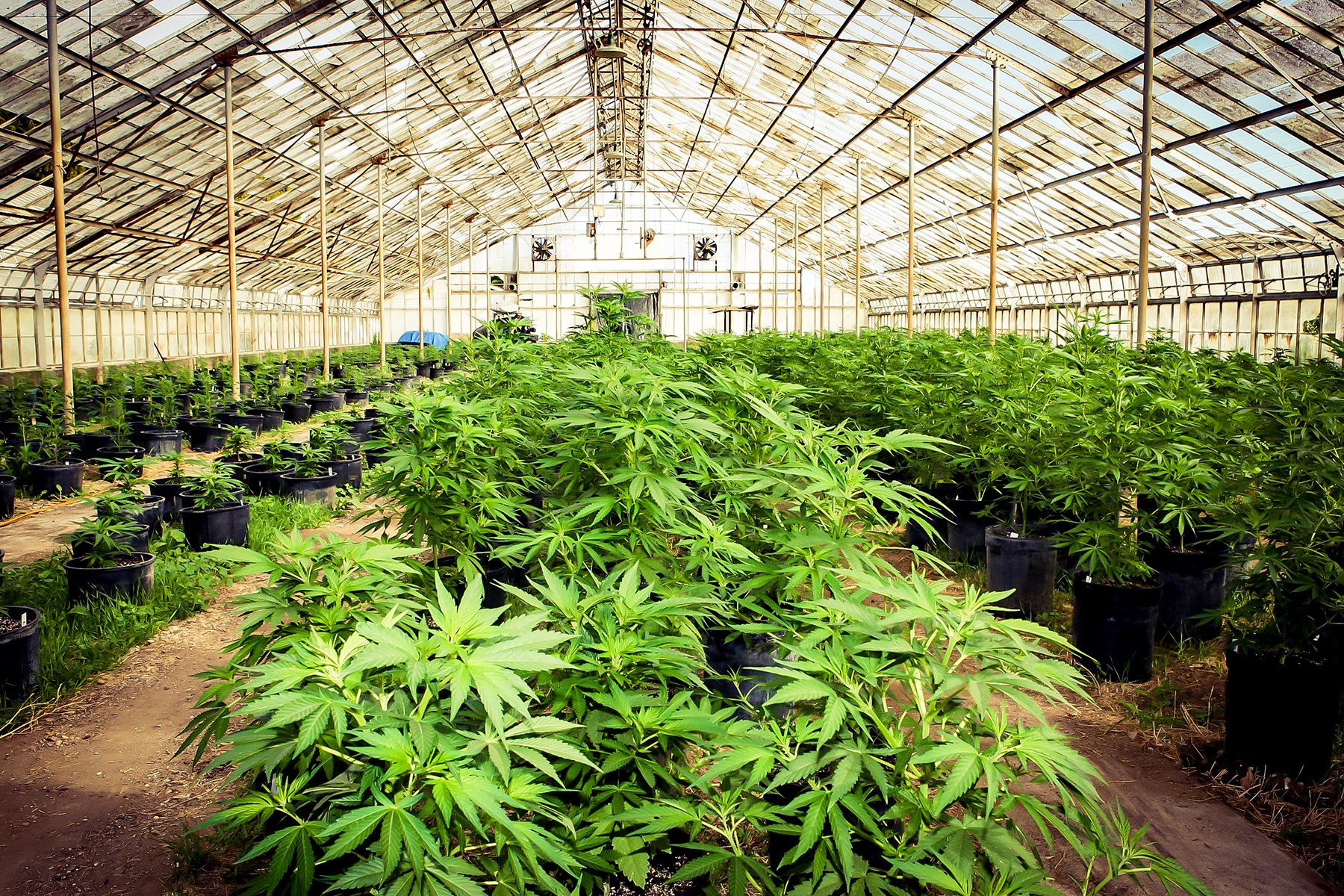A few months ago, a cannabis store near Leafly’s office in Seattle was offering some good happy-hour deals. A co-worker mentioned that they were heading over to grab a few things, and I asked if they might pick up an eighth for me.
Almost immediately, another co-worker called us out: Is that even legal?
It was a fair question. So I sheepishly canceled the ask and started emailing state cannabis regulators.
In most states, the practice still rests on shaky legal ground.
It might seem silly to be paranoid about a mundane errand in states where cannabis is legal, but the response to my question was startling. In most states, the practice still rests on shaky legal ground. While medical cannabis programs typically allow designated caretakers to pick up cannabis for registered patients, adult-use laws are far more ambiguous on whether one adult can legally buy cannabis for another.
And that could mean unexpected criminal penalties—just for being a pal.
Varies by State
Most adult-use states allow adults 21 and older to give away small amounts of cannabis as gifts to other adults. Things get trickier, legally speaking, when reimbursement is involved. But just as friends might go on a beer run before the big game—“Can everyone Venmo six bucks to Sarah?”—it seems reasonable that one roommate might want to pick up the prerolls before the HBO finale, then ask others to pitch in some cash.
Washington: Illegal
In Washington, where I live, it seems this practice is illegal. Brian Smith, communications director for the Washington State Liquor and Cannabis Board, told me: “It would technically be a violation of RCW 69.50.401,” which in part prohibits the delivery of controlled substances.
Brian Smith, Washington State Liquor and Cannabis Board
“As innocuous as this scenario sounds,” Smith explained, “if this were allowed there’d be no way to prevent unlawful delivery services. It would also complicate prosecution of unlawful possession with intent to deliver.” State rules currently prohibit all forms of cannabis delivery, including by licensed businesses.
I asked how likely it would be that someone would actually be arrested and tried for picking up an eighth for a friend. “I doubt somebody would be prosecuted with the felony,” Smith replied. “That said, it would depend on the jurisdiction as well as the facts and circumstances surrounding the exchange.”
For what it’s worth, Smith added that technically, Washington laws might not allow for someone to pay another person back for alcohol either, “but RCW 66.44.090 is not as clear on this point.” In any case, he said, “I very much doubt that a prosecutor would file on a case for paying somebody back for purchasing liquor for them unless there were aggravating circumstances.”
Massachusetts: Legal
On the other coast, in Massachusetts, things feel a bit more common-sense. A Cannabis Control Commission spokesperson there told me that state law “does allow one to purchase the permissible amount of marijuana for a friend who is 21 years or older and be reimbursed by that friend for not more than the price paid for the marijuana.”
Keep in mind, the entire process is limited by individual purchase and possession limits, the spokesperson said. In other words, the entire pool of cannabis products being divided between friends can’t exceed the state’s purchase or possession limits for an individual.
California: Probably OK
In California, “it’s not an easy answer,” Alex Traverso, assistant communications chief for the Bureau of Cannabis Control, told me. But in a state that’s grappling with sweeping regulatory challenges—including various local crackdowns on unlicensed businesses as well as a state lawsuit over licensed delivery operations in cities and counties that prohibit the cannabis industry—he was realistic about the likelihood of enforcement.
“It’s not our position to say, ‘Hey, it’s no big deal,’” he said, but “we’re dealing with a lot more on the enforcement front.”
Alex Traverso, California Bureau of Cannabis Control
As with regulators in other states, Traverso stressed that accepting tips, violating possession limits, and providing cannabis to minors are clearly prohibited. And as in other states, local prosecutors can decide for themselves what activities to prosecute.
Traverso described a trip to a cannabis store as pretty ho-hum for most Californians, likening it to a stop at a grocery store or pizzeria. “I don’t think it’s anything out of the ordinary,” he said of good-faith cannabis runs between friends. “I think that there are those possession limits spelled out in the regulations, but if you’re a person who goes to the store and buys a certain amount of product and then sells part of it to whatever friend, I don’t think that there’s any way that that would be enforced.”
Oregon: Probably OK
Is picking up cannabis for a friend legal in Oregon? “Yes,” said Mark Pettinger, an Oregon Liquor Control Commission spokesperson, “as long as you’re not charging the friend ‘consideration’ for making the purchase. Think of it this way. If you’re just buying for someone and getting reimbursed that’s okay; if you’re acting a reseller (at a higher price) it’s not.”
Mark Pettinger, Oregon Liquor Control Commission
The question is “not directly” addressed in state laws or regulations, Pettinger noted, but he doubted such an errand would draw attention from law enforcement, at least so long as individual purchase and possession limits are respected.
“I don’t think this would be on the radar of local law enforcement. But remember whatever’s in your possession you’re responsible for,” he said. “The personal possession limit would still be in play – and the personal possession limit is pretty close to the daily (retail) purchase limit.”
Colorado: Uncertain
In Colorado, a spokesperson for the state’s cannabis regulatory office wanted to make clear that “the Marijuana Enforcement Division’s responsibility is specific to the marijuana businesses and employees operating those businesses.” Basically, this means their oversight ends once a cannabis product leaves the store. Regulators would likely open an investigation, however, if your errands started looking like an unlicensed delivery service.
Shannon Gray, Colorado Department of Revenue, Marijuana Enforcement Division
“One-off reimbursement that doesn’t constitute commercial sales may not raise these concerns, although it would certainly be dependent on the specifics of each case,” Shannon Gray, a marijuana communications specialist for the Colorado Department of Revenue, told me.
Which means if you get in trouble for running a cannabis errand for a friend, it’s likely you’ll be dealing with local law enforcement. Determinations of whether a cannabis run is legal, Gray said, “can also be made by law enforcement and district attorneys around the state, who each bring their unique perspective to these transactions. As you can appreciate, I’m not able to speak on their behalf.”
Other States
Regulators’ offices in some states I reached out to, including Nevada and Michigan, didn’t respond to emailed requests for comment. We’ll update this article if that changes.
Best Practices
Because state laws can be ambiguous, the most pragmatic way to look at this question is probably as a matter of enforcement. Which is to say: It’s hard to predict how courts might rule on a lot of these issues, so your best bet is to avoid ending up in court at all.
The takeaways basically boil down handling these errands in good faith.
The safest way to do that, of course, is to legally buy your own cannabis. But even state regulators acknowledged that going on a cannabis run and picking up a product for a friend didn’t sound like the most outlandish idea. “That sounds like pretty standard behavior,” said Traverso at California’s Bureau of Cannabis Control. Unfortunately, local law enforcement agencies may disagree.
I’m not a lawyer and don’t mean to offer legal advice, but if you’re trying to minimize risk, a few common themes emerged as I spoke to regulators in different states. The takeaways basically boil down handling these errands in good faith. Don’t go looking for loopholes in order to run some sort of business or do an end run around other state restrictions.
If you’re trying to stay on the right side of the law—the spirit of the law, at least—here are a few things to keep in mind:
- Reimbursement only. Don’t offer or accept a tip—financial or otherwise—in exchange for going on a cannabis run. If you’re splitting a $300 ounce in half, one friend shouldn’t be paying the other more than $150. The more you operate in a way that resembles a business, the more likely you are to run afoul of law enforcement.
- Obey purchase, possession, and gifting limits. If you’re in a state that restricts your purchase or possession to an ounce of cannabis flower, for example, don’t buy or carry more than that—even if some of what you have is for a friend. Similarly, don’t exchange more cannabis than is allowed under your state’s gifting rules.
- Friends only. It’s one thing if you’re grabbing a gram for a friend or family member on your way over to their place every so often. It’s another if you’re advertising home delivery on Instagram. Don’t do that.
- Don’t advertise. “Friends only” doesn’t mean it’s OK to offer cannabis delivery to everyone who follows you on social media. Be sure you’re doing an honest favor, not providing a formal service.
- No minors. Keep it to adults 21 and over. Except in certain medical circumstances, providing cannabis to an underaged person is a crime.
- Don’t cross state lines. As with most things involving state-legal cannabis, it has to stay within the state.
Buyer(s) Beware
No matter how well you adhere to the warnings above, it’s ultimately up to law enforcement to decide whether to arrest and prosecute you for activity they believe is illegal—whether or not it actually is. And in many states, the law around picking up cannabis for a friend is still unclear enough that a court could potentially rule against you. Conduct yourself accordingly.
Almost across the board, state cannabis regulators I spoke with seemed to think the likelihood of enforcement around good-faith cannabis errands between adults was quite low. But it’s not hard to open a newspaper and find tragic stories of vulnerable people—often people of color—facing stiff penalties for actions they believed were legal, like carrying a vial of CBD oil they were told was “legal in all 50 states.” Until there’s more clarity, picking up cannabis for a friend may carry at least some criminal risk.





